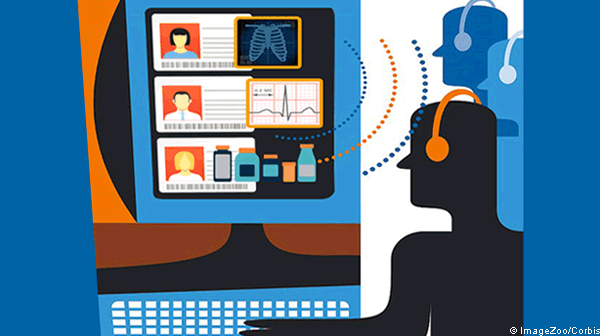
As with face-to-face encounters, documentation of telemedicine encounters must be included in the patient’s ongoing medical record. This documentation ensures an accurate and complete patient history that can be referenced by subsequent physicians.
Hospitals should also ensure that telemedicine providers who are credentialed on the staff of a different hospital or whose licenses are from another state or country are legally permitted to provide services to the receiving hospital’s patients.
In addition, patients should be made aware of and consent to the potential benefits and risks associated with telemedicine, including delays that could result from deficiencies or failures of telecommunication equipment and the potential for security breaches.
Proactive risk, quality, and compliance activities are vital to avoiding mishaps related to telemedicine and any negative public exposure that could follow, Dr. Hildebrand maintained. He urged EDs that use telemedicine to develop a risk-management program that includes some of the following tactics:
- Confirm that the performance of telemedicine providers meets compliance, credentialing, and quality-of-care standards as determined through a peer-review process.
- Ensure physicians know informed-consent requirements for telemedicine.
- Confirm that telemedicine providers can point out the difference in the patient-physician relationship via telemedicine and understand the need to remotely establish rapport and trust.
- Create or review existing telemedicine agreements for compliance with CMS’ Conditions of Participation and modify them as needed if the facility decides to rely on the credentialing of the distant-site hospital or telemedicine facility.
- Review insurance provisions of a telemedicine agreement for mutual hold harmless and indemnification provisions and to ensure adequate insurance coverage.
- Ensure that professional liability insurance provides coverage for telemedicine services.
References
- Gustke SS, Balch DC, West VL, et al. Patient satisfaction with telemedicine. Telemed J. 2000;6:5-13.
- Telemedicine Case Studies. American Telemedicine Association Web site. Available at: http://www.americantelemed.org/learn/telemedicine-case-studies. Accessed December 24, 2013.
Karen Appold is a medical writer in Pennsylvania.
Pages: 1 2 3 4 | Single Page





No Responses to “From Teleneurology to Telepsychiatry, EDs Increasingly Rely on Telemedicine”